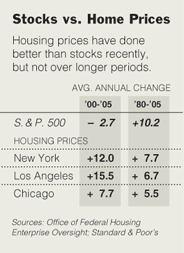ER_Hopeful
Recycles dryer sheets
Hi all,
I've been considering buying a vacant lot in rural Big Island, HI for retirement home purpose. But retirement being at least 10 - 15 years away, am I being silly to be thinking about buying now. (We're in the mid 30's and hope to retire by the age of 50.) I meant think of the 10+ years of property taxes(not that much, $200 - $300 per year) and maintenance before I actually get to use the land, but part of me wants to get in on it now since price is going down.
Other info: The lot prices range from $20k - $50k depending on size and location. We live in Calif.
So for those of you who bought land and built a retirement home, how many years in advance did you buy? Did you wish you should have waited until closer to retirement age?
thanks
I've been considering buying a vacant lot in rural Big Island, HI for retirement home purpose. But retirement being at least 10 - 15 years away, am I being silly to be thinking about buying now. (We're in the mid 30's and hope to retire by the age of 50.) I meant think of the 10+ years of property taxes(not that much, $200 - $300 per year) and maintenance before I actually get to use the land, but part of me wants to get in on it now since price is going down.
Other info: The lot prices range from $20k - $50k depending on size and location. We live in Calif.
So for those of you who bought land and built a retirement home, how many years in advance did you buy? Did you wish you should have waited until closer to retirement age?
thanks

